Bernese Mountain Dog vs. Greater Swiss Mountain Dog: The difference between these giant breeds
Which mountain dog is right for you?
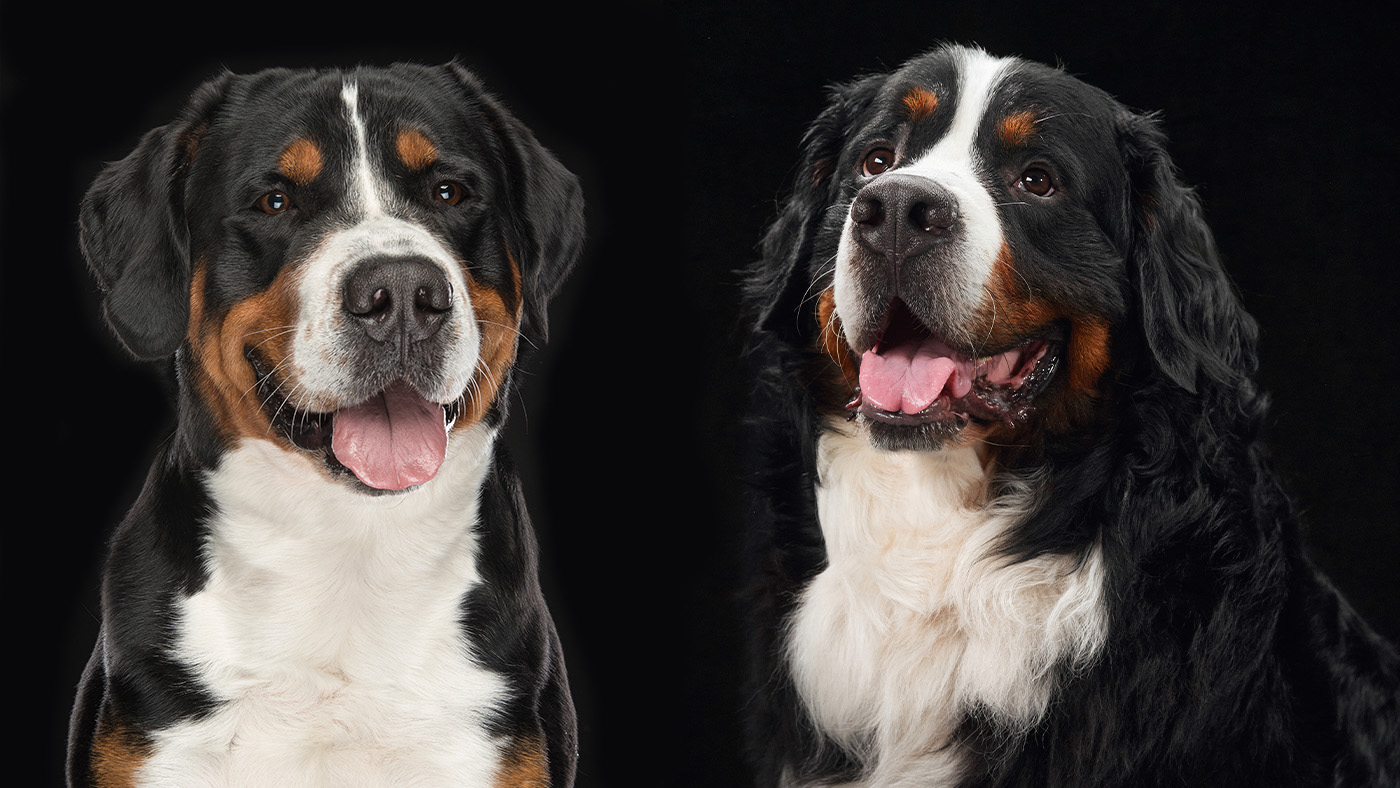
If you're looking for a dog breed that is all about outdoor adventures, then you may want to compare the Bernese Mountain Dog vs. the Greater Swiss Mountain Dog.
While both breeds hail from Switzerland, there are some differences that are certainly worth considering. Exercise needs, personality traits, and health considerations can be important factors in deciding which breed is right for you.
When it comes to affection and loyalty, the Bernese Mountain Dog and the Greater Swiss Mountain Dog come neck in neck. Both breeds were bred as working dogs and, therefore, are used to bonding closely to their owners, making them both excellent canine companions.
Keep reading as we get into everything you need to know about these large breed dogs. We also have our vet Dr Rebecca MacMillan offer expert advice on each dog. Let's check it out!
Size: Bernese Mountain Dog vs. Greater Swiss Mountain Dog
It can be easy to mistake these two breeds. But one main way to tell them apart is by their size. Male Greater Swiss Mountain Dogs or Swissies, they can reach up to 28.5 inches tall and can weigh anywhere between 115-140 lbs.
The Bernese Mountain Dogs, or Berners as they are often called, are a bit smaller and slighter, with males standing at 27.5 inches and weighing between 80-115lbs.
One thing we recommend when it comes to caring for large-breed dogs is to choose a dog food that is specially formulated for large breeds. These will contain the right amount of protein, carbs, and other nutrients to support their larger bodies and joints.
Get the best advice, tips and top tech for your beloved Pets
Appearance: Bernese Mountain Dog vs. Greater Swiss Mountain Dog
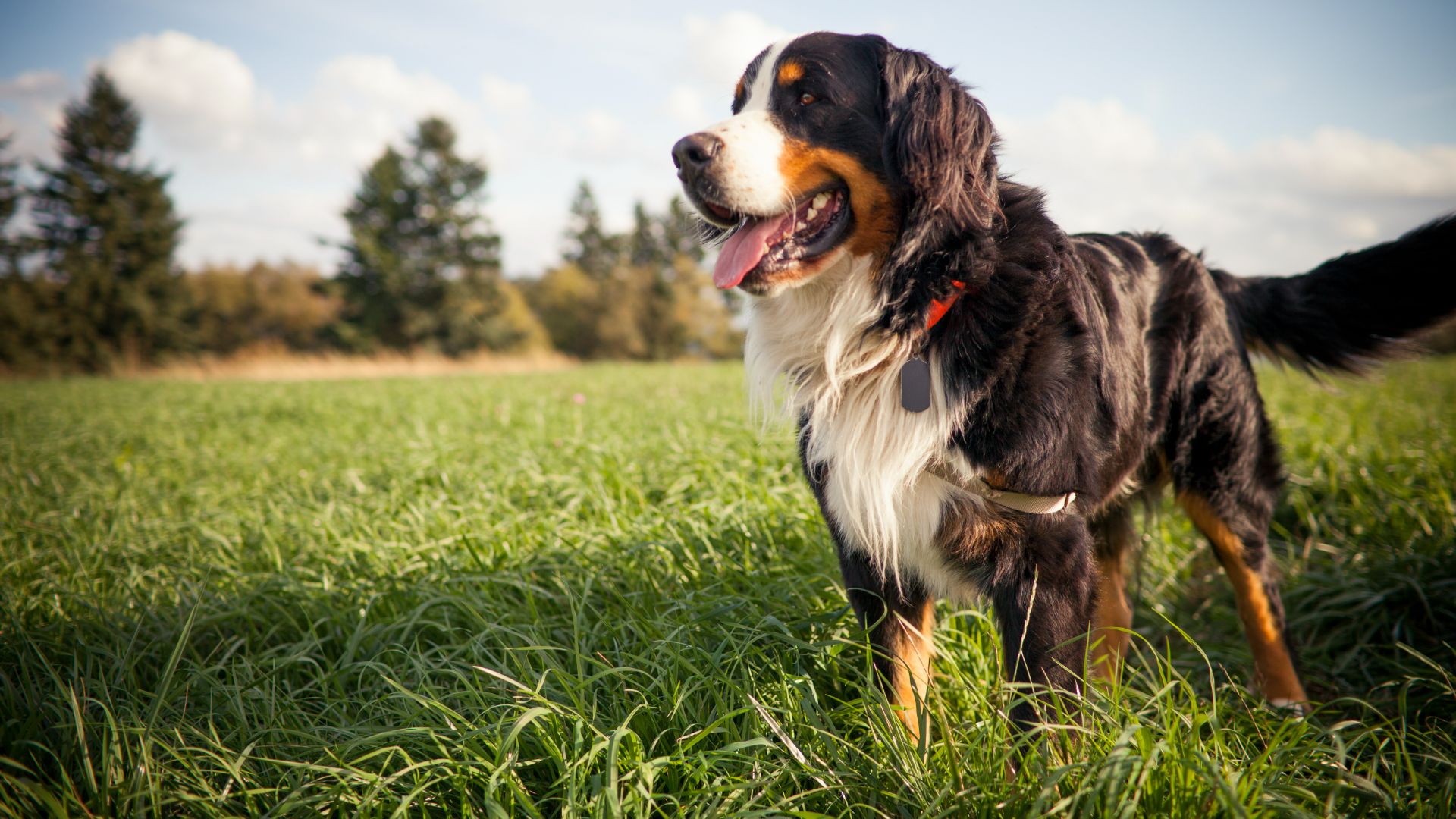
Bernese Mountain Dog
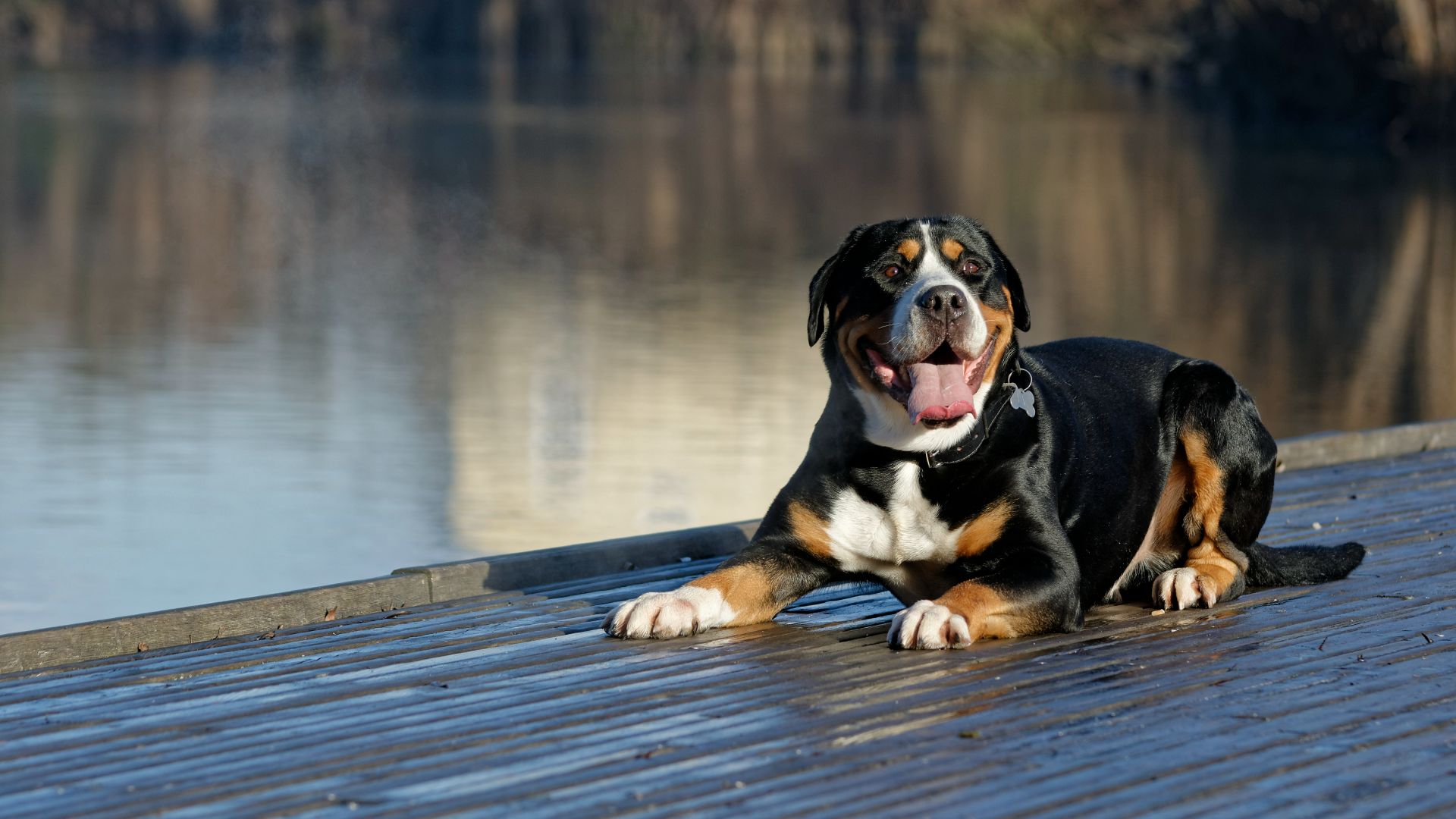
Greater Swiss Mountain Dog
One other main difference between these two breeds is their coat. The Bernese Mountain Dog has a long, thick double coat.
"This dog’s coat is designed to allow them to face cold, snowy conditions. Water runs off the glossy top coat, with their undercoat keeping them well insulated," says Dr. MacMillan.
The Greater Swiss Mountain has a dense double coat, although the topcoat is much shorter than the Bernese. Both of these breeds have a thick undercoat, so you can still expect to see a good amount of shedding.
Trainability: Bernese Mountain Dog vs. Greater Swiss Mountain Dog
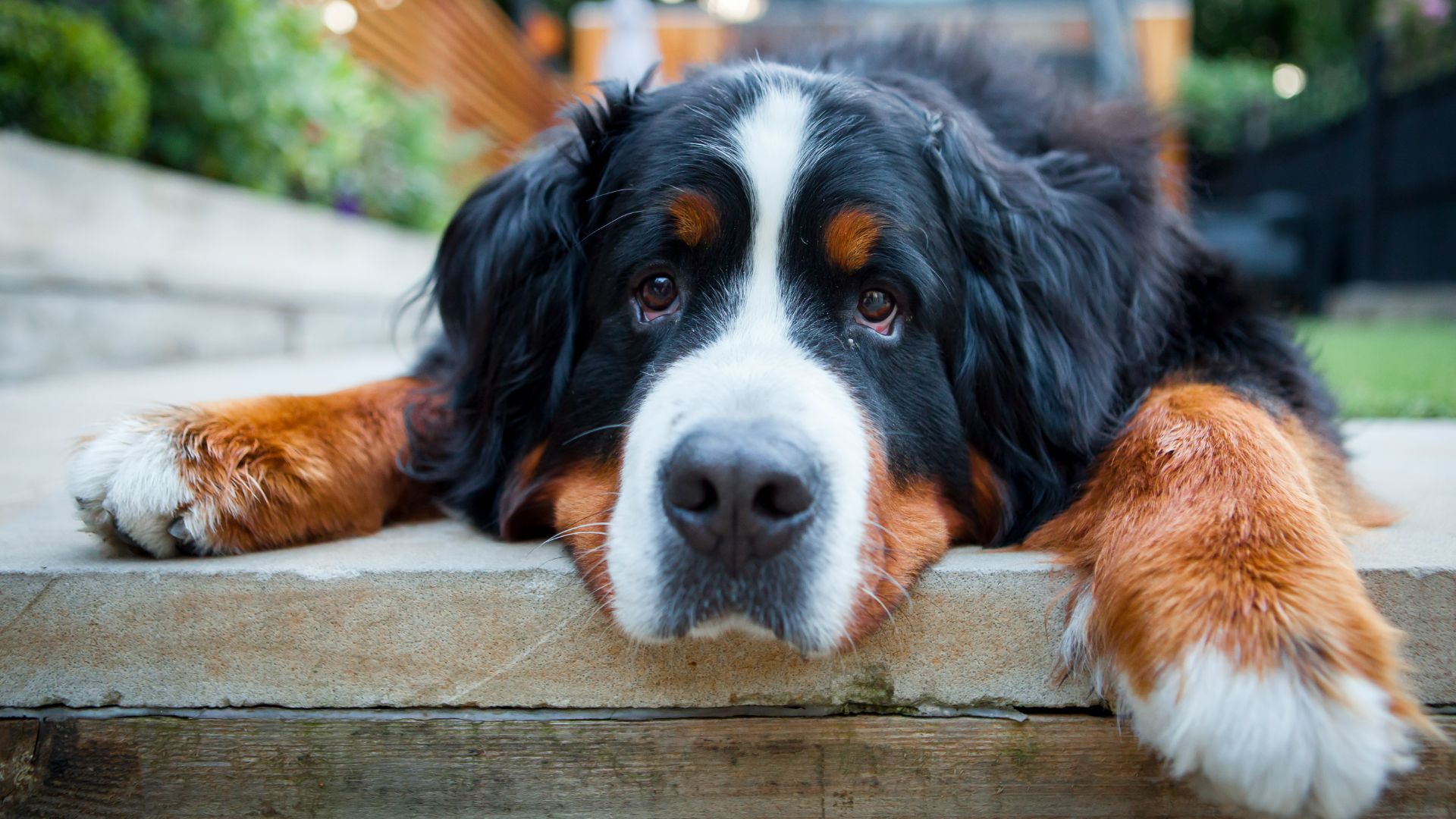
Berners may have Swissies beat when it comes to trainability. Bernese Mountain Dogs are eager to please, which makes them easy to train.
Dr. Rebecca MacMillan says, "This is an affectionate and attentive dog, so even a beginner should find things straightforward if they use a positive and consistent approach."
That doesn't mean that Greater Swiss Mountain Dogs are hard to train, however.
"The Greater Swiss Mountain Dog is the more stubborn of the two and can be a bit more of a challenge," says Dr. MacMillan. But that's nothing that a lot of positive reinforcement and some of the best dog treats can't remedy.
Exercise: Bernese Mountain Dog vs. Greater Swiss Mountain Dog
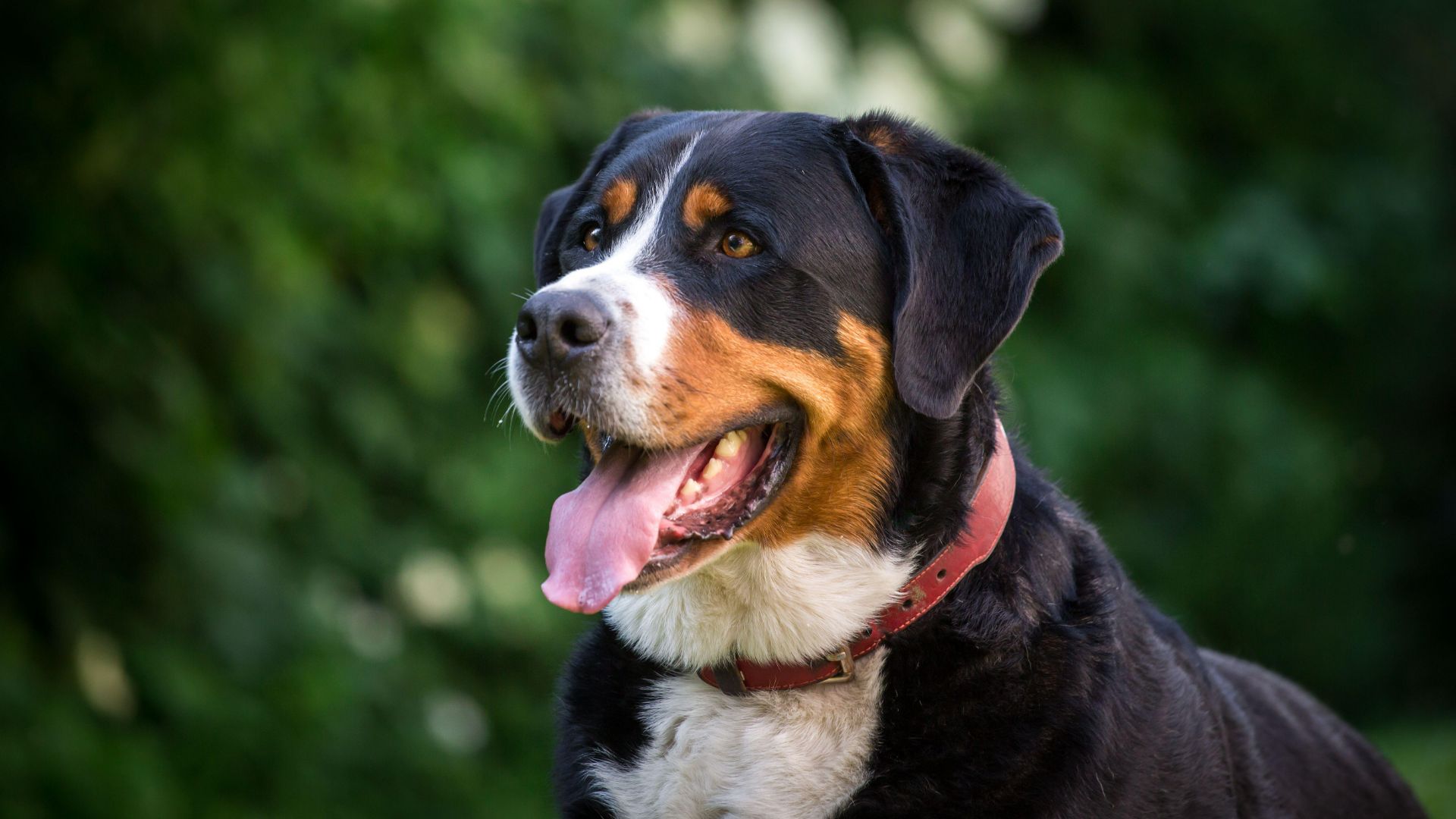
"Both types of dogs were bred for endurance work in harsh conditions, so their exercise requirements are similar," says Dr. MacMillan. She notes that each breed needs about an hour of exercise each day.
She also explains that the Greater Swiss Mountain Dog is more energetic and might require more physical activity than the Bernese. Luckily, there are many ways to workout with your pet, aside from just walks. Your Berner will enjoy hiking, swimming, or even just a game of tug-of-war.
Grooming: Bernese Mountain Dog vs. Greater Swiss Mountain Dog
It may come as no surprise that with the Berner's thick double coats, regular grooming will be required to keep their coats in the best shape. They should have brushing sessions a few times a week, especially in shedding seasons, spring and fall.
"You may also need to trim the hair around their ears and feet to keep them neat," Dr MacMillan advises.
While Swisses also have a thick undercoat, they do not shed as much as the Bernese Mountain Dog, although they will still require weekly grooming with one of the best dog brushes.
Health: Bernese Mountain Dog vs. Greater Swiss Mountain Dog
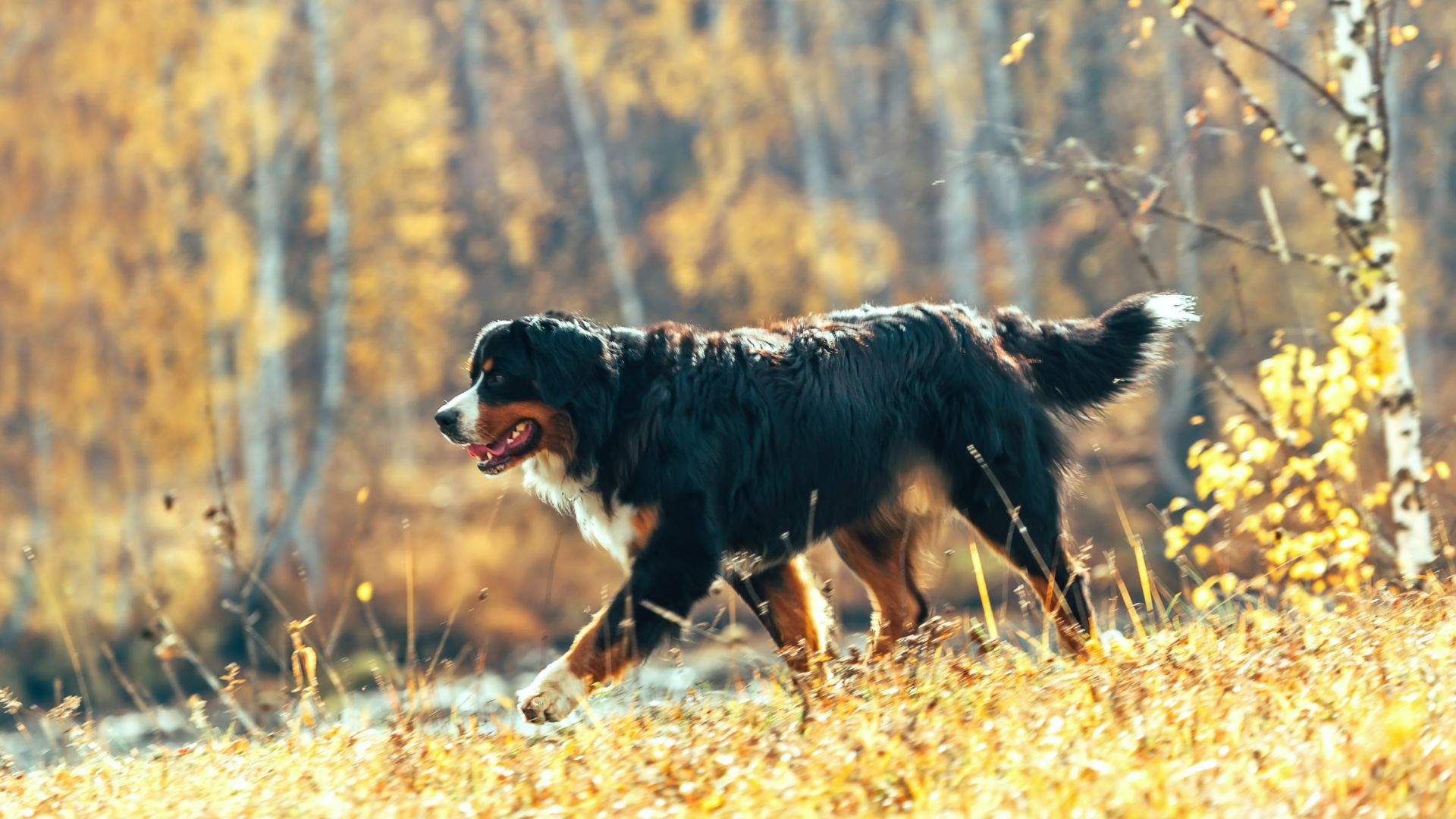
"Bernese Mountain Dogs are prone to Von Willebrand’s disease (a clotting disorder) as well as cardiac issues, so screening for these inherited conditions is also recommended in this breed," advises Dr. MacMillan.
As with other large-breed dogs, both of these breeds are prone to hip and elbow dysplasia, a condition that can lead to joint pain in dogs. Additionally, both of these giant breeds have the potential risk of developing gastric dilatation volvulus.
"This condition occurs when the stomach bloats and then twists on itself, and it is a true emergency. A dog suffering from GDV will die unless they receive urgent veterinary treatment," says Dr. MacMillan.
Heatstroke is another thing to be wary of in large-breed dogs. Be sure to take extra care in the hot weather.
Owner suitability: Bernese Mountain Dog vs. Greater Swiss Mountain Dog
If you're a first-time owner, Dr MacMillan says the Bernese Mountain Dog might be the better choice for you as they are more laid-back and are easier to train.
She does warn, though, "The main issue for a novice might be the amount of grooming that the Bernese requires. Slobber and hair will be your life from now on, so it’s important to be prepared for that!"
If you are a more experienced owner, we would suggest the Greater Swiss Mountain Dog. They are bolder and more outgoing, but while they can be a bit more stubborn when it comes to training, they will still make loving and loyal companions.
Enjoyed this feature? Here are more facts about Bernese Mountain Dogs
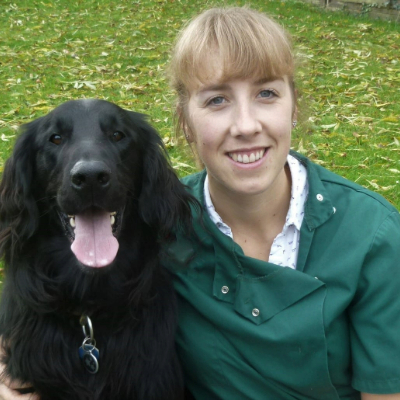
Rebecca is a veterinary surgeon who graduated in 2009 from the Royal Veterinary College in London. She has a wealth of experience in first opinion small animal practice, having done a mixture of day-to-day routine work, on-call emergency duties and managerial roles over the years. Rebecca enjoys medicine in particular and she is proud to have recently achieved a BSAVA postgraduate certificate in small animal medicine (with commendation).
She writes on various feline and canine topics, including behavior, nutrition, and health. Outside of work and writing she enjoys walking her own dog, spending time with her young family and baking!
Edited by Georgia Guerin and Megan Milstead.
This page was last updated on April 10, 2025.

Our staff writer, Alexis, is a digital content specialist and passionate pet advocate with a background in lifestyle journalism. Raised in a lively home filled with cats, dogs, and fish, she channels her lifelong love for animals into creating helpful, research-driven content for pet parents.
She collaborates with veterinary professionals to ensure accuracy and is currently pursuing additional pet care certifications.
A graduate of Bowling Green State University, Alexis has contributed to major UK and US publications, including Daily Mail, Space.com, and Black Women Rising Magazine.
